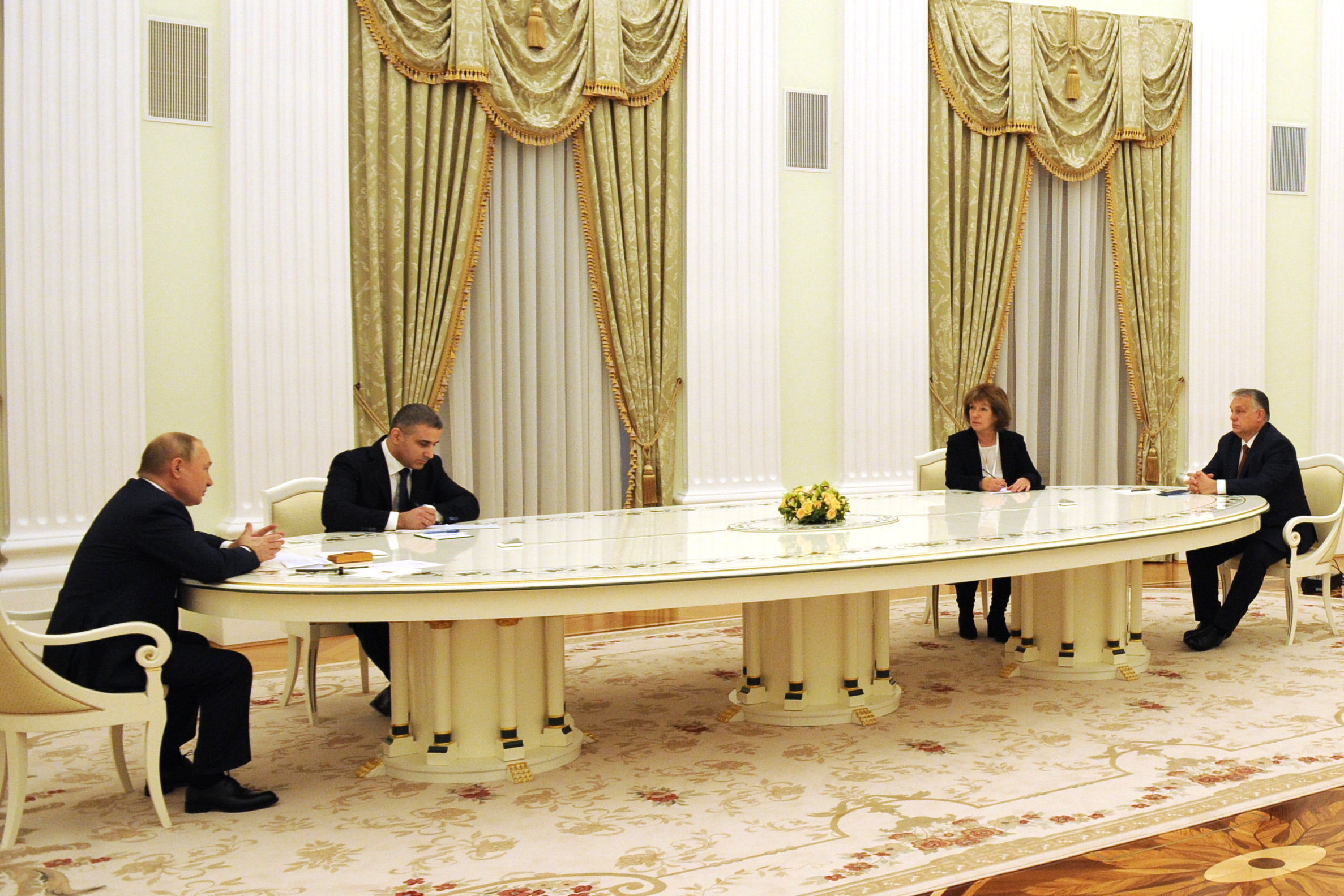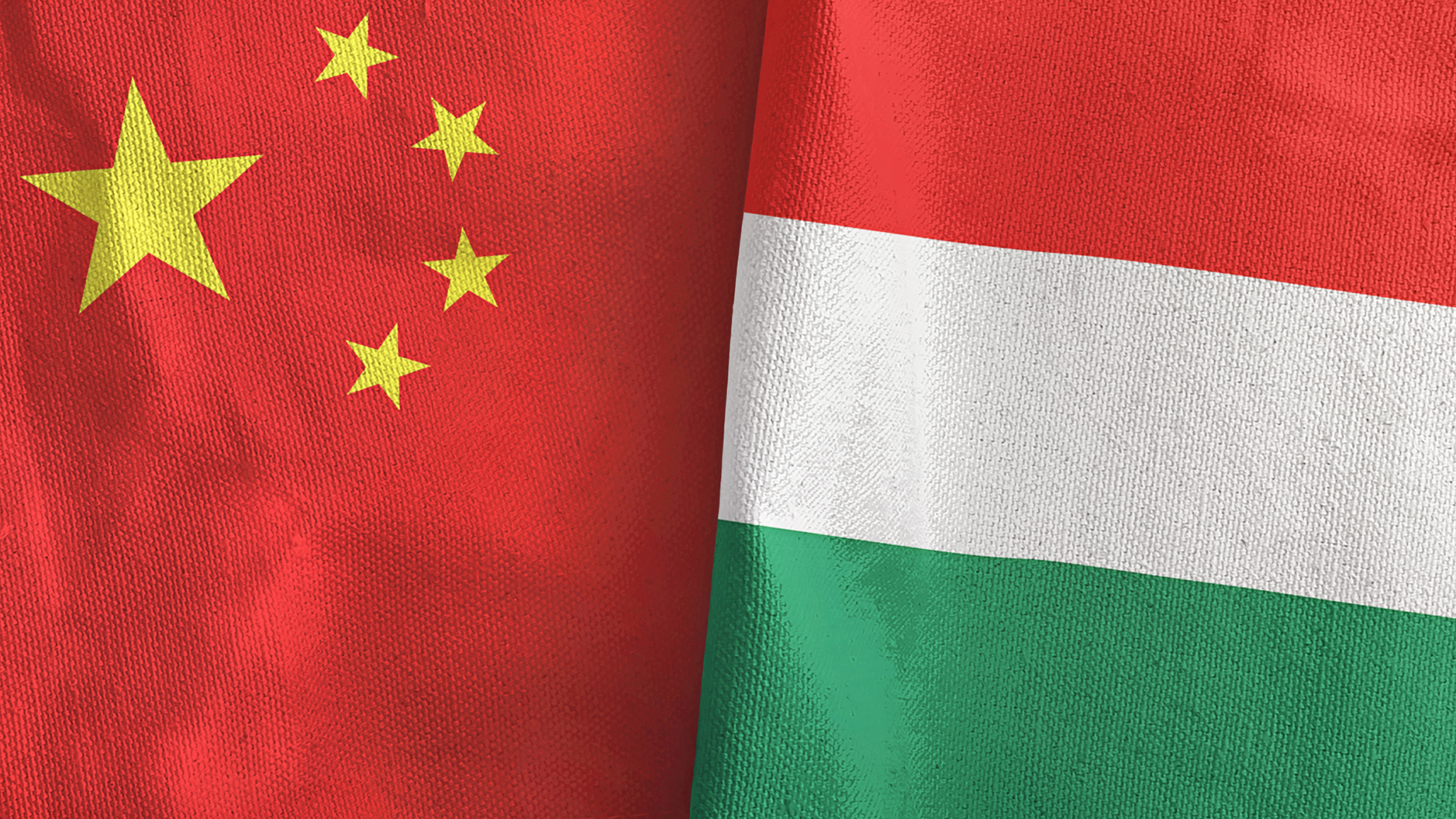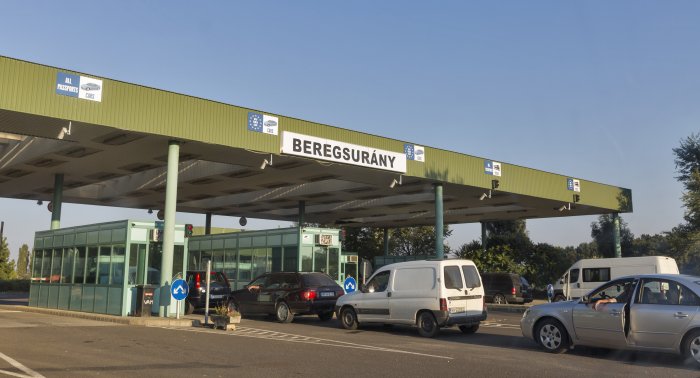Orbán meets with Putin in Moscow

Photo by MTI/Kremlin
Prime Minister Viktor Orbán met with Russian President Vladimir Putin in Moscow on Tuesday, according to a report by news agency MTI.
Orbán acknowledged the importance of Hungary's long-term gas delivery contract with Russia and said he wants to negotiate a higher delivery volume.
Putin said Russia's contract with Hungary on gas deliveries extending until 2036 offers the country security and long-term stability. He added that Hungary is buying the Russian gas at a "much cheaper" price than that on global markets.
Orbán thanked his host for the delivery of Russian coronavirus jabs early during Hungary's vaccine rollout, noting that 900,000 Hungarians were inoculated with Sputnik V.
Commenting on the Ukrainian situation, Orbán said his visit is a "peace mission", too, on behalf of the European Union.
"We're prepared to reach a reasonable agreement," he said, adding that no European leader wants war.
Orbán noted that he is meeting with Putin for the 12th time over a period of 13 years. "The two of us have the longest memory of the relationship between the EU and Russia," he said.
Addressing the upcoming general elections in Hungary, the sides agreed they want to continue their cooperation afterward.
"We want to win, I have high hopes that we can work together for many years," Orbán said.
Putin said much has been done together to serve the good of the people, and expressed hope that work could continue.
Both praised their common efforts in the area of economy, too.
Orbán said cooperation on the upgrade of Hungary's Paks nuclear power plant is "advancing at an excellent pace", and that Hungarian investments cleared by the Russian government have been implemented. He added that new proposals on developing this cooperation are on the table.
Putin noted that bilateral trade between Russia and Hungary rose 30% in January-November. In addition to nuclear energy, "important projects" are also underway in the machinery industry involving Russia and Hungary, he added.
Delivery of an additional 1 bln cubic meters of gas "not a big problem", Putin says
At a joint press conference after the meeting, Orbán said "meaningful talks" could start on raising the volume of gas Hungary gets from Russia by 1 billion cubic meters a year.
Putin said Russia needs to see how its gas delivery situation develops, but added that an additional 1 bln cubic meters will "not be a big problem for us". He added that Hungary is a "dependable partner" as a transit country for Russian gas.
Under Hungary's renewed long-term gas contract, signed last September, Hungary is getting 4.5 bln cubic meters of gas a year from Gazprom, including 3.5 bln delivered from the south, through Hungary's interconnector with Serbia, and 1 bln via the pipeline running from Austria.
Orbán said preparations for the construction of two more blocks at the Paks nuclear power plant are "in the final phase", adding that when the last permit is obtained, "which is expected to happen soon", the investment will enter "the implementation phase".
Rosatom is the general contractor for the upgrade of the plant and the Russian state is financing 80% of the investment cost.
Other matters discussed at the talks mentioned at the press conference included licensing for the production of Russia's Sputnik jabs at Hungary's national vaccine plant which is set to be finished by year-end; the establishment of a Hungarian-Russian joint venture to play a role at a container terminal that will be completed soon near Hungary's border with Ukraine; and the launch of direct flights between Budapest and the Russian cities of Yekaterinburg and Kaliningrad.
Addressing the issue of Ukraine, Orbán said "negotiations and dialogue" are necessary and welcomed talks between Russia and Hungary's Western allies.
Orbán praises "Hungarian model" in relations with Russia
He also pointed to the example of the "Hungarian model": "Hungary is a member of NATO and the European Union, while at the same time we foster excellent ties with Russia...That requires mutual respect."
"Russian-Hungarian ties are positive and constructive, and Hungary is committed to continuing this in future," Orbán said.
According to a report by CNN, Putin claimed at the press conference that fundamental Russian concerns regarding NATO were "ignored".
He said that Russia had not seen "adequate consideration of our three key demands regarding NATO expansion, the renunciation of the deployment of strike weapons systems near Russian borders, and the return of the [NATO] bloc's military infrastructure in Europe to the state of 1997, when the Russia-NATO founding act was signed."
A return to the state of 1997 would mean that Hungary would no longer be a member of NATO, as it joined the alliance in 1999.
According to MTI, Minister of Foreign Affairs and Trade Péter Szijjártó held talks with his Russian counterpart Sergey Lavrov in Moscow for an hour and a half on Tuesday.
In a statement issued by his ministry, Szijjártó said the sides approved a joint, seven-point action plan on cooperation in such areas as the food industry, energy, space research, and healthcare.
SUPPORT THE BUDAPEST BUSINESS JOURNAL
Producing journalism that is worthy of the name is a costly business. For 27 years, the publishers, editors and reporters of the Budapest Business Journal have striven to bring you business news that works, information that you can trust, that is factual, accurate and presented without fear or favor.
Newspaper organizations across the globe have struggled to find a business model that allows them to continue to excel, without compromising their ability to perform. Most recently, some have experimented with the idea of involving their most important stakeholders, their readers.
We would like to offer that same opportunity to our readers. We would like to invite you to help us deliver the quality business journalism you require. Hit our Support the BBJ button and you can choose the how much and how often you send us your contributions.








